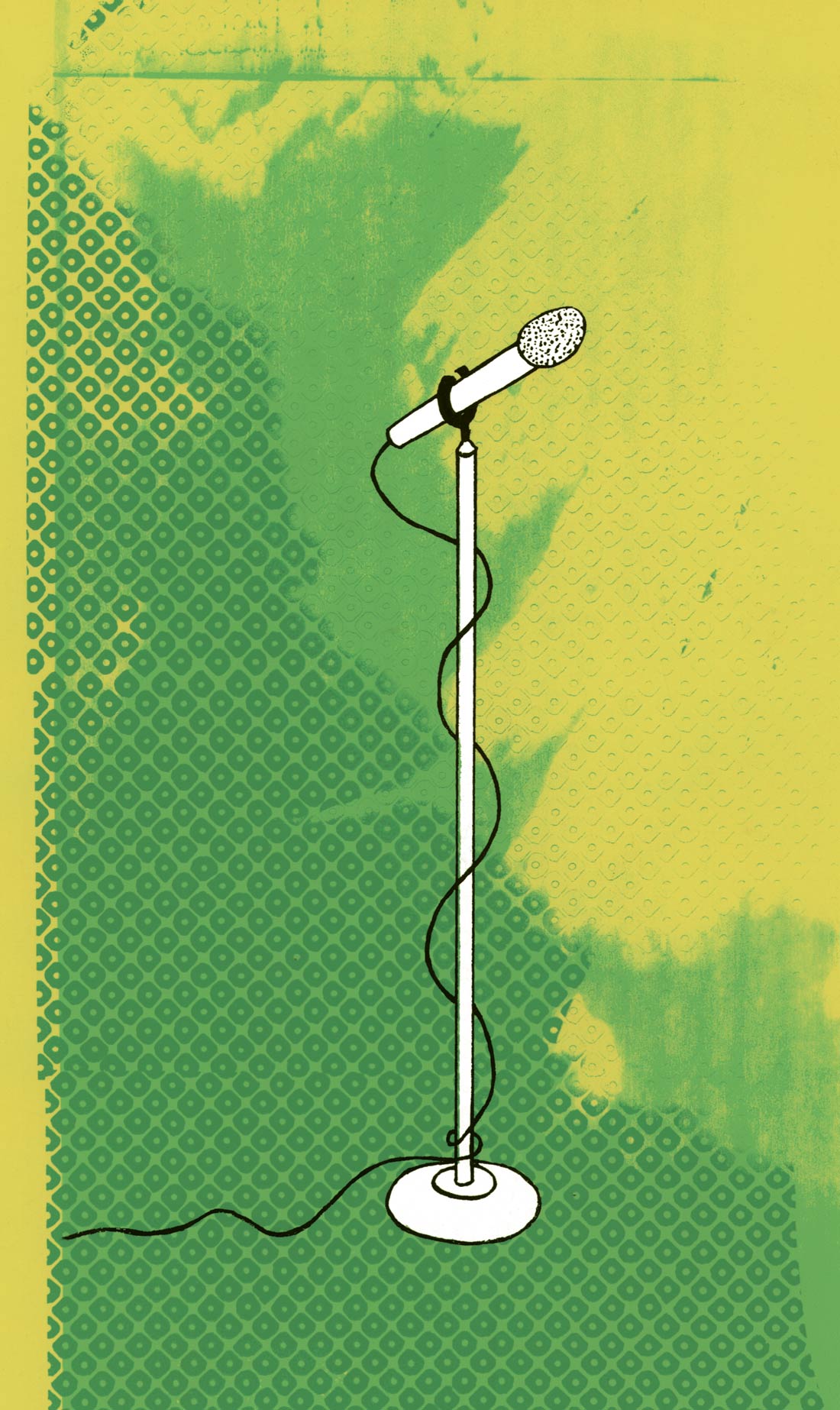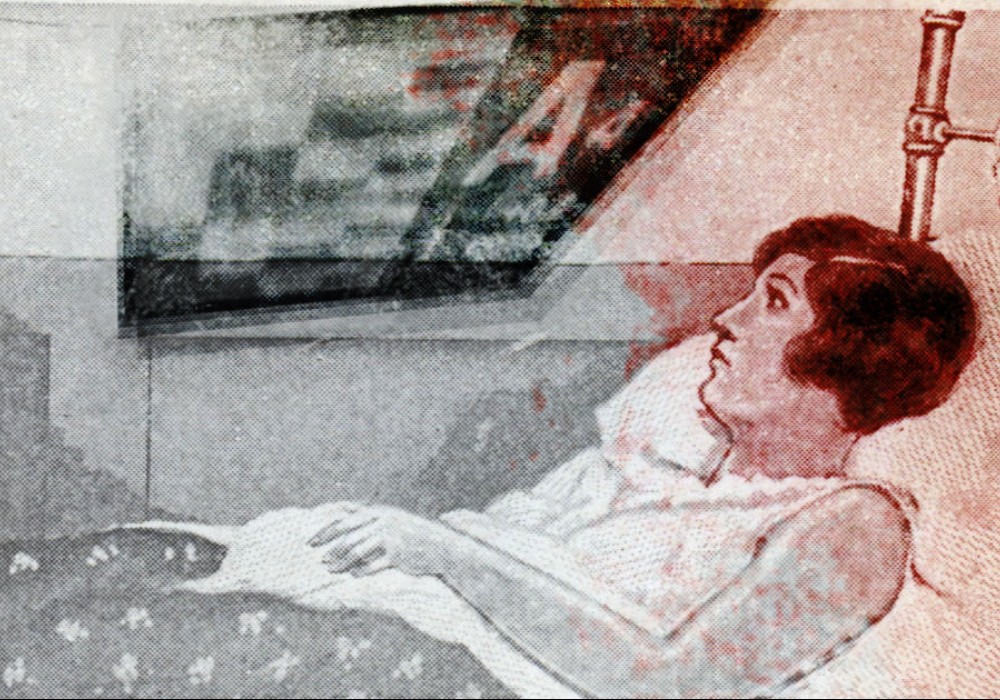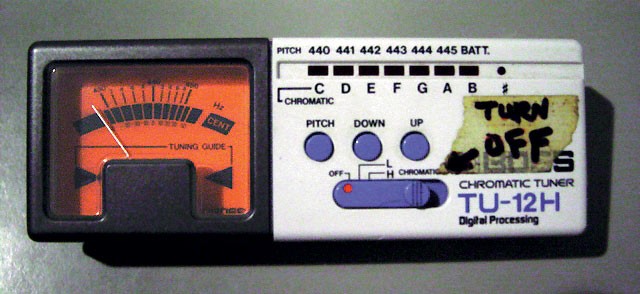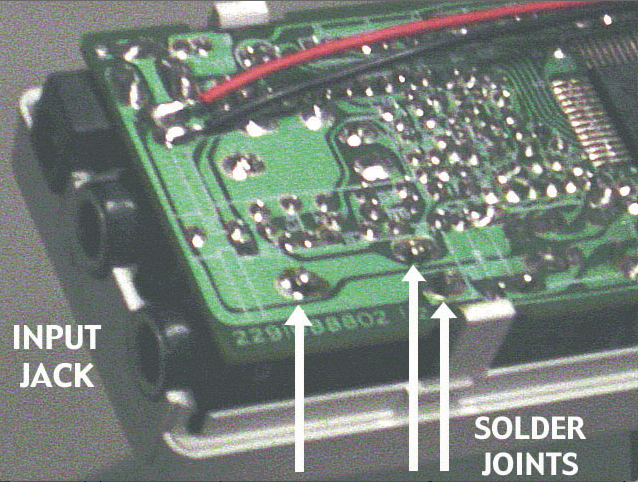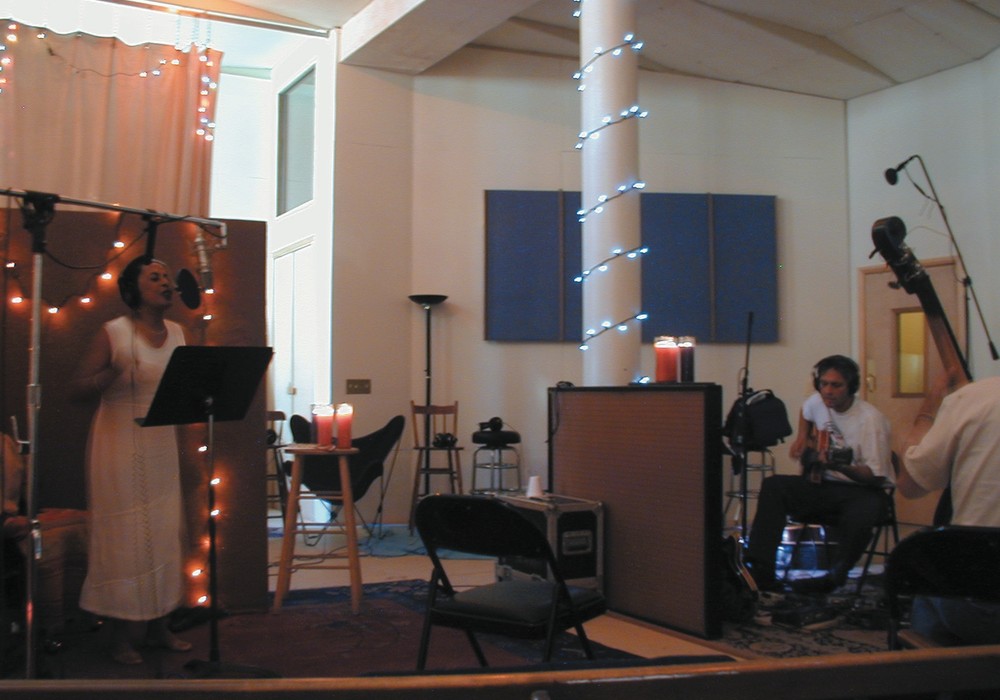As a guy who's been recording guitar bands for 14 years now, I have to admit to a problem: I have a painfully accurate awareness of tuning. This means I hear tuning discrepancies some people might not notice consciously; other people might just feel slightly uncomfortable without knowing why. Many of us who are engineer/producers have this blessing/curse. As a wee lad, I would turn on the radio and find myself thinking "Wow... Hendrix is out of tune there!" or "Rod Stewart's way sharp on this whole song" or "Why is that organ part so out of tune with the guitars?" And some classical orchestral music drives me nuts for this reason. Yup, a curse.
In less-commercial pop music (i.e. "indie rock") you can get away with more, if you're good. Sonic Youth and Pavement just wouldn't be the same if they were always in perfect tuning... but not many bands are capable of trumping imperfect tuning with their sheer force of personality, and you shouldn't assume your band is one of them.
In the studio, of course, my ear for tuning is a blessing... but if I get fatigued, it can transform into the Beast That Ate The Session, as my ears start playing tricks on me. I finally resolved to learn as much as I could about potential "tuning nightmares" so I could better defend myself.
To begin with, it is essential to grasp one iron-clad fact, or you will go insane:
It is impossible to ever get any fretted, stringed instrument "perfectly in tune". Nope. Can't be done.
Once you understand this, you can start dealing with the implications. Your life will become easier. I'll come back to this in a moment. Let's talk tuners.
THE INFERNAL MACHINES
Once in a blue moon I still get a band that actually doesn't use 'em.
Yeah, hard to believe, and this becomes tuning nightmare #1 when someone wants to do an overdub a few days later. Tuning by ear to the tape can be damned difficult, especially with the crazed noisy bands I often work with. I generally beg such a band to reconsider their tuner aversion, at least for the few days they are in the studio with me. Seems pretty obvious, right? (The single, amazing exception to this has been the band Zen Guerrilla, with whom I've made two albums entirely tunerless. Their tuning sense is so uncanny that I learned to just let 'em alone.)
I encounter three kinds of tuners: the kinds with little meters with needles that move (make sure you hold them horizontal!), the kind with rows of flashing LEDS, and those "strobe" types with a moving wheel and a flashing light. I haven't seen a strobe tuner in years, and never liked 'em much, though they work well if you can figure 'em out. Oh yeah, then there's those silly little "pitch pipes" like a mini- harmonica... avoid!
The most common moving-needle types are the Boss Chromatic ones, and they're pretty good, but here's a tip: the input jack is soldered directly to the internal circuit board, and these solder joints always crack eventually, which makes the tuner act "intermittent," with the needle jumping up and down. I have resoldered more of these in the studio than I can count; the plastic case comes apart easily, and you can resolder the jack in seconds. If you have one, check it: it may not be a "bad guitar cable" that's been frustrating you.
The little ones with flashing red and green LEDs that are often called "stage tuners" are rarely accurate enough for studio use — their only advantage is that you can read 'em without stooping and squinting. Hit...
